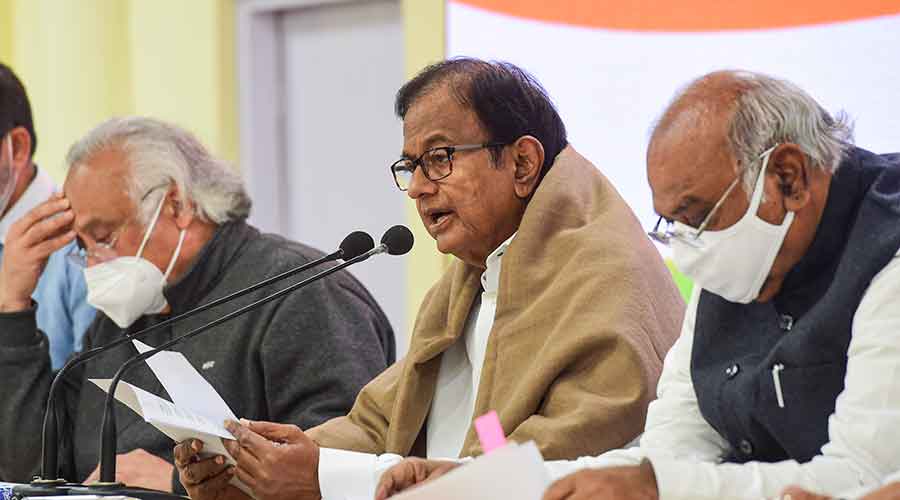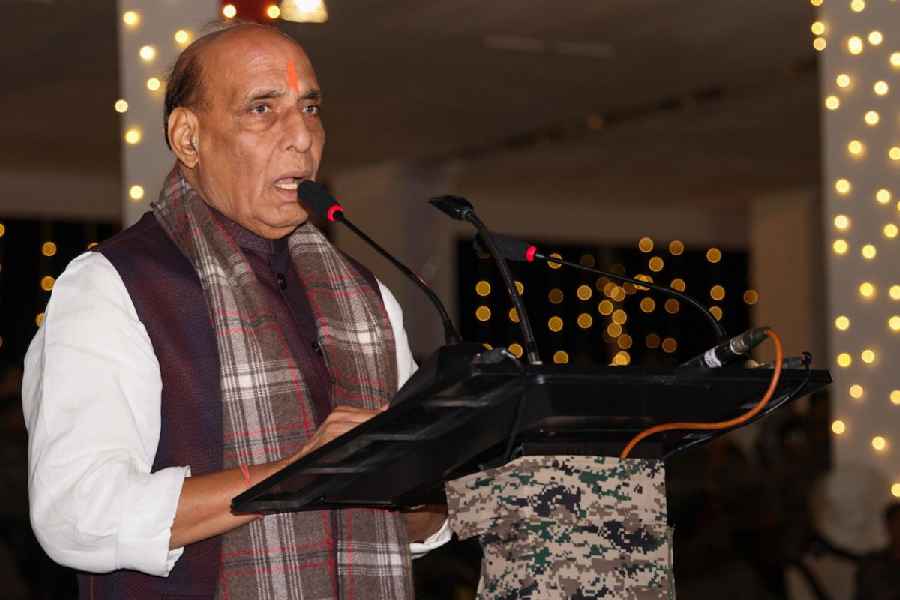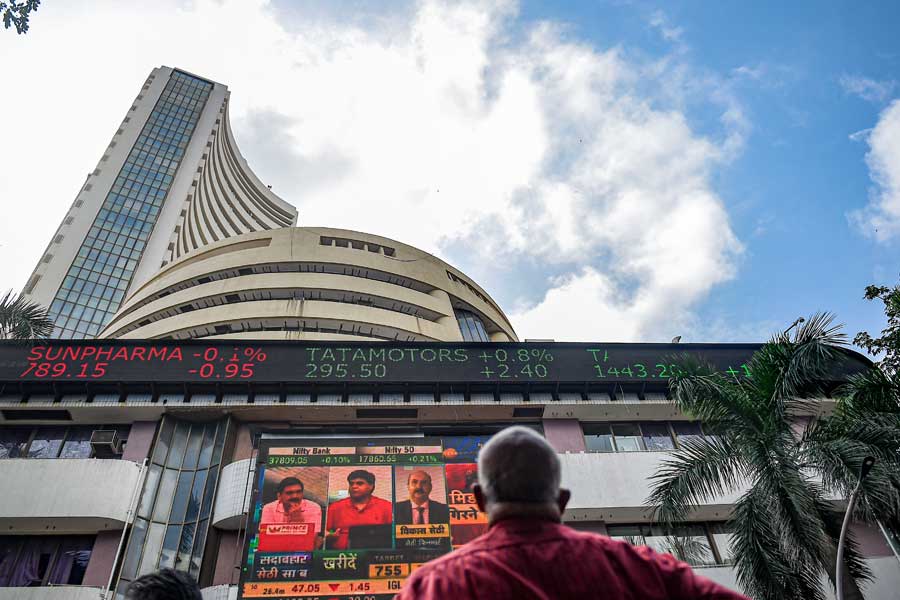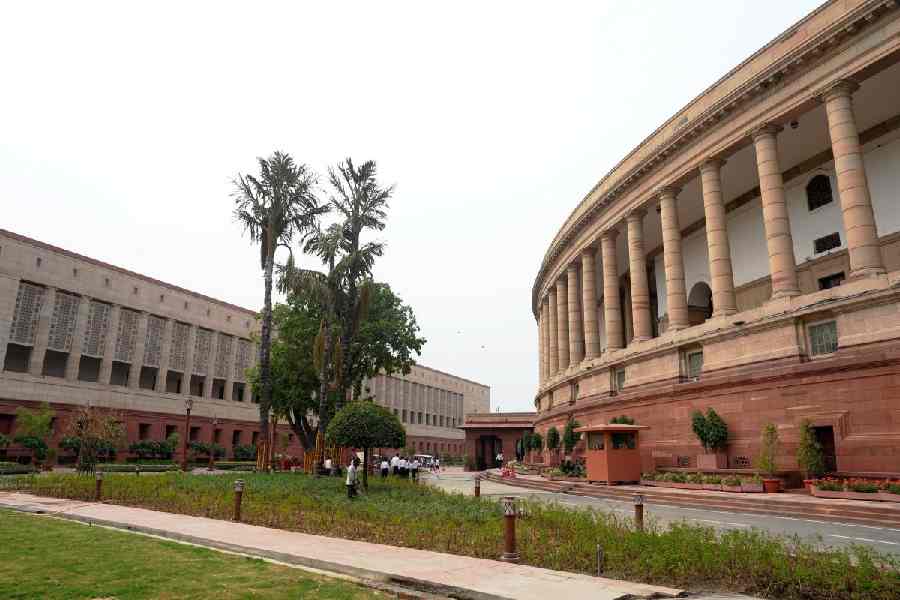The Congress on Thursday expressed fear that the Union budget, to be presented on February 1, would be dressed up with “false numbers” to create a “conjurer’s illusion” for the next financial year.
It predicted a slow and painful recovery for the Indian economy, which it accused the Narendra Modi government of having wrecked.
“We are afraid that the finance minister will present dressed-up revised estimates for 2020-21 and attempt to build an attractive narrative for 2021-22,” former finance minister P. Chidambaram told a news conference.
“The revised estimate for 2020-21 will be a set of false numbers and, therefore, the budgetary estimate for 2021-22 will be a conjurer’s illusion.”
Rahul Gandhi too took at dig at the government a day before the budget session of Parliament starts. “Mr Modi’s governance is a lesson in how to ruin one of the world’s fastest growing economies,” he tweeted.
Chidambaram argued that the government was “exceptionally obstinate, impervious to good advice and uncaring about the calamitous consequences of its economic policies”.
He said the Opposition had a duty to show the mirror to the finance minister, who is presiding over the country’s first recession in four decades.
Chidambaram rued that the six years of Modi’s rule had witnessed “the slow but inexorable descent into a deep hole”.
“The conclusion of a recent study by Brookings using IMF and World Bank data is humiliating but not surprising at all: the biggest rise in poverty will be in India and India will overtake Nigeria and become the country with the largest number of poor people,” he said.
He recalled how the Congress had earlier emphasised that the assumptions behind the 2020-21 budget were wrong and the targets set were unattainable.
“Even without the pandemic, the economy would have continued on the downward path that had begun in the first quarter of 2018-19 and continued for eight successive quarters,” Chidambaram said.
“The pandemic pushed the economy into an abyss: minus 23.9 per cent in Q1 of 2020-21 and minus 7.5 per cent in Q2. The year 2020-21 will end with negative growth. None of the numbers estimated at the beginning of the year will be achieved.
“The revenue targets will be missed by a large margin, capital investment will take a hit, the revenue deficit will be close to 5 per cent and the fiscal deficit will exceed 7 per cent.”
Chidambaram predicted that GDP growth in 2021-22 (in constant prices) will not be more than 5 per cent and that the unemployment rate would remain high.
He said agriculture would grow at a satisfactory rate if the government does not arbitrarily disrupt the sector with anti-farmer laws and retrograde import-export policies for farm products.
Chidambaram flagged hurdles such as inadequate credit growth, protectionism, crony capitalism, encouragement of monopolies, the climate of distrust and vindictive administrative actions. He suggested certain measures on behalf of his party.
“Impart a large fiscal stimulus, make direct cash transfers to 20-30 per cent of the families at the bottom for at least six months, formulate a rescue plan for MSMEs, reduce tax rates (especially GST and other indirect tax rates, eg, on petrol and diesel), increase government capital expenditure and recapitalise public sector banks,” the Congress leader said.
He advised the government to abandon protectionist policies, re-engage with the world, enter into bilateral trade agreements with as many countries as possible, and remove the bias against imports, apart from formulating sector-specific revival packages for telecommunication, power, mining, construction, aviation, and tourism and hospitality.










